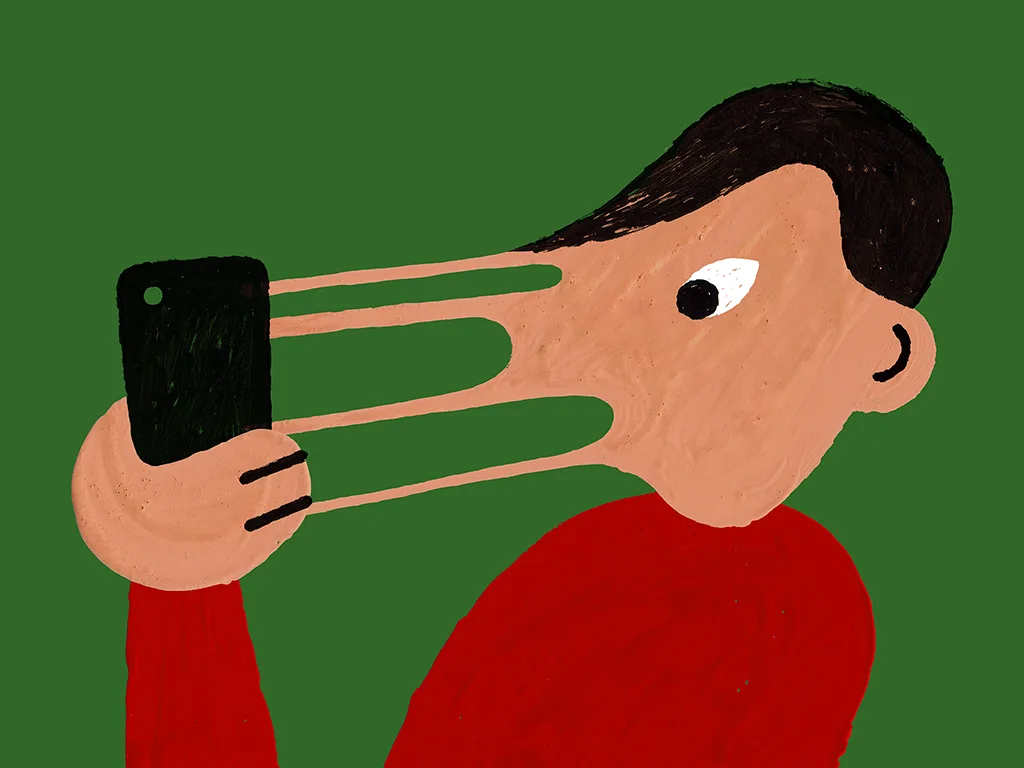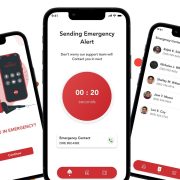Screen addiction can directly or indirectly cause physical and psychological issues such as eye strain, muscle fatigue, insomnia, anxiety, and depression.
By Michael Akuchie
The number of smartphone users has steadily increased over the years, largely due to manufacturers making more budget-friendly options for purchase. Research conducted by global data gathering and visualisation platform, Statista, found that the population of smartphone owners is expected to hit 6.4 billion by 2029, which is only five years from now. At first glance, this translates to increased connectivity for communication, mobile banking, and other purposes. However, it also encourages the growth of a recurring problem: screen addiction.
It is common to find people glued to their screens, constantly scrolling through the feeds of instant messaging sites in search of the latest piece of information or content. Whether you’re at the bus station waiting to board a bus or at the park trying to enjoy a quiet time away from the world, you can find one or two people fixated on their screens. Smartphones receive frequent feature upgrades, making them miniature computers with greater capacity than their predecessors.
With these devices capable of completing diverse tasks beyond calling and texting, it has become difficult to separate people from them. As a significant part of the world has gravitated towards remote work, more and more people are embracing the culture of doing their jobs from their houses, in front of a setup that typically comprises one or two monitor displays, depending on the nature of the job. Spending several hours staring at a screen whether for work or leisure can cause detrimental effects to the user in the long run.
Neoviva, a licenced addiction treatment facility, defines screen addiction as “a compulsive urge to engage with electronic devices, disregarding negative impacts on daily responsibilities like work, school, or social interactions.” For clarity, smartphones and monitors are not the only devices that a person can be addicted to. Excessive dependency on electronics such as handheld video gaming consoles and televisions can also lead to screen addiction. As Neoviva puts it, the more we engage with the gadgets around us, the quicker our brains release dopamine, a neurochemical often described as the “pleasure pathway” which makes us feel more and more satisfied.

Some symptoms of screen dependency include the increased loss of interest in other activities that do not involve engaging with a screen, not being honest about the amount of time spent on a screen, and constant friction between the user and their external relationships. For instance, picking up an interest in a show like Friends which has 10 seasons could see a person spend weeks confined to the bed or couch just to complete it. That means the person is less likely to engage in other activities like taking a stroll or hanging out with actual friends.
Screen addiction can directly or indirectly cause physical and psychological issues such as eye strain, muscle fatigue, insomnia, anxiety, and depression. Aside from adults, excessive screen time is also harmful to children as it can affect their interests in schoolwork, friendships, and other socialising activities. According to an article available at the National Library of Medicine, a study conducted by the Quebec Longitudinal Study of Child Development cohort discovered that frequent exposure to screens can negatively impact children’s cognitive abilities. The study found that an hour’s increase in TV time led to a 7% unit drop in class participation plus a 6% unit decrease in math proficiency. Similarly, the findings of a Spanish research study revealed a link between screen usage and academic performance, with increased screen time leading to a significant decrease in students’ aptitude.
For people dealing with screen dependency, the best way to reconnect is through digital detox, a practice which improves our mental and physical well-being and ensures we socialise more and get better sleep. Similar to physical detoxification where we expel harmful substances from our bodies, digital detox is the period where a person decides to take a break from using their devices such as smartphones and laptops. The idea behind this is to allow us to consolidate existing relationships, engage in other activities, and most importantly, reconnect with the real world. There is no one-size-fits-all approach to digital detox, but the following tips should help you get started on the journey towards improving your well-being.
The first step is to create time for other activities in your schedule that do not involve staring at screens. For instance, remote workers can use their off-hours to take walks and exercise their bodies which have been stationary for several hours. To help you remember to do this, consider setting an alarm exclusively for this purpose.
You can also try the direct approach and go on extended breaks from certain applications. You can do this by deactivating your account with the app or consider moving the app to your phone’s freezer which is meant for apps that you barely use. Sometimes, being away from an app can give you room to think deeply about its impact on your life, helping you to decide if it is still worth keeping. You can also try switching off your main device at certain hours and leave a feature phone (a phone with buttons and fewer features than a smartphone) to receive calls and texts. If any or all of these strategies are ineffective, it may be time to reach out to a mental health professional and begin counselling to explore other methods.
Technology has made many positive contributions to our daily lives with smartphones, computers, televisions, and video games being some of its derivatives. Although it is not wrong to unwind with a Netflix show or scroll through social media, an over-reliance on these gadgets can lead to adverse effects if left unchecked. We should not ignore the benefits of doing other things aside from staring at screens. Social interaction is highly beneficial because it increases our self-esteem, allows us to cultivate our communication skills, and lowers our stress levels. As heavy consumers of technology, it can be tricky to remove ourselves from screens and do something else. However, the benefits of digital detox far outweigh the minor inconvenience of reducing our screen usage.
Michael Akuchie is a tech journalist with four years of experience covering cybersecurity, AI, automotive trends, and startups. He reads human-angle stories in his spare time. He’s on X (fka Twitter) as @Michael_Akuchie & michael_akuchie on Instagram.
Cover Photo: Healthline



